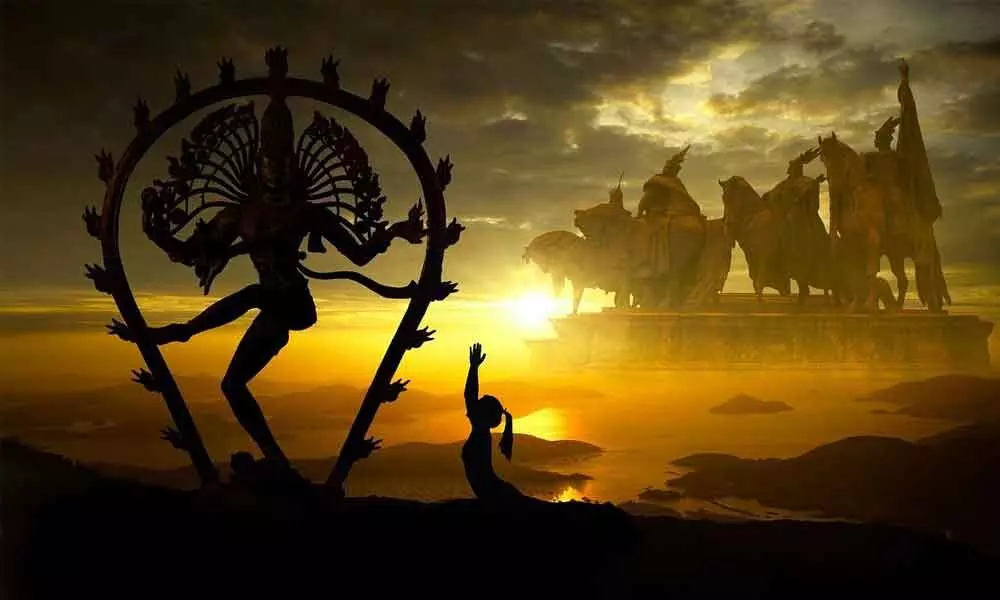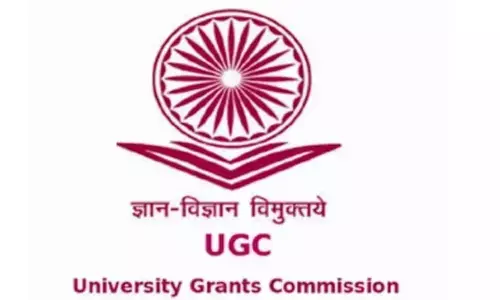Hindu, Hinduism, Hindutva… the endless debate is on!

Representational Image
Salman Khurshid compares Hindutva to radical Islam in his latest book on Ayodhya and has generated the expected controversy.
Salman Khurshid compares Hindutva to radical Islam in his latest book on Ayodhya and has generated the expected controversy. It is a sad fact that our understanding of the terms 'Hindu', 'Hinduism', and 'Hindutva' remain feeble and ambiguous even after many decades of independence. The proponents of Hindutva see it as a component of Hinduism which defends or is simply the kinetic component of Hindu Dharma. The opponents see Hindutva as a disturbing force extending to even 'fascism', a word to beat any opposition into silence. The proponents look at Hindutva to preserve self-respect; and the opponents pontificate, 'Hinduism is good; Hindutva bad.'
'Hindu' originally started as a geographical and historical entity for people on the other side of the Indus or Sindhu River by the Persians, or Arabs, or the Greeks. This later assumed the identity of a group of people standing separate from Muslims and Christians. 'Hindus' crystallised in the face of the Islamic invaders, colonial rulers, and the local population to identify a group standing separate from Muslims and Christians. Then, the colonials constructed a certain framework to understand the multiple Indian traditions rooted in their own Christian religious framework. This led to the formation of 'religions' called 'Hinduism', 'Buddhism', 'Sikhism', 'Jainism', and so on, with even internal fights like the Catholic-Protestant encounters.
Through the early Brahmo and Arya Samaj movements, the pre-independence Congress policies of Muslim appeasement (especially acute in the Khilafat agitation), the perceived extra-territorial loyalties of Muslims in pre-independent India, Savarkar's writings, the fallout after Gandhi's assassination, the political rise of the Hindu movement after independence with several issues cropping up (Uniform Civil Code, Shah Bano case, MF Hussain nude paintings , Temple control and so on), Hindutva was primarily a defence mechanism of the Hindus against what they thought were an attack (cultural. physical, and political) on themselves. The confusion on semantics has been severe which even our Supreme Courts have not been able to address. In an indirect manner, through some related acts, the Constitution does try to define the Hindus, but leaves gaping holes in the interpretations. As all legal entities, Constitutional, and academic scholarship act in concert to make traditions into religions, friction rises in society as an outcome. The words- 'Hindu', 'Hinduism', and 'Hindutva', themselves are capable of a wide variety of interpretations from extremely positive to extremely negative. Each word now means religion, philosophy, culture, tradition, heritage, practices, or simply a word of abuse depending on the context and the user. They may all mean the same thing too.
We have simply traditional systems in the country with multiple ways of going about in life. Traditions go beyond the standard 'acceptances' and 'tolerances' which the ill-suited secularism can maximally achieve and have the important characteristic of an indifference to differences. This has been our greatest strength in dealing with multiculturalism. A superimposed narrative of Hinduism as a religion and a later Hindutva, by force of circumstances, is responsible for the friction, anger, and debate on all sides today. The biggest strength of Indian pluralism is the acceptance of others without feeling threatened about one's own. The Abrahamic religions in India also become a part of the hundreds of such sampradayas. We should relook at all our social sciences and all our textbooks to first decolonize ourselves.
Sanatana Dharma is the overarching philosophy of Indic culture which transcends and permeates Hindu, Hinduism, and Hindutva and can even accommodate the other conventional religious systems of India. The Indian solution to deal with Abrahamic religions was to traditionalise them; we however are insisting to turn our traditions into religions making them hard and intolerant. Understanding the genesis of Hinduism, Hindutva, and other related terms, we should realize that our great country is in the trap of false semantics. Hinduism (as a religious phenomenon) and Hindutva are the same; both exist and dissolve together.
— Dr Pingali Gopal, Warangal











